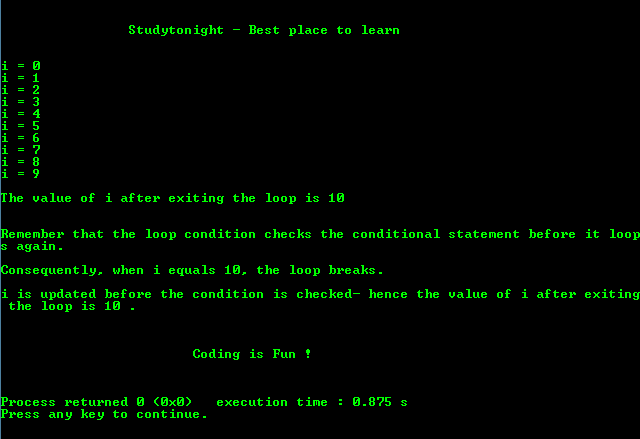C 程序:for循环的基础
每个循环由序列中的三个部分组成
- 初始化:用于初始化循环变量。
- 条件:每次迭代后检查,作为循环的入口点。
- 更新:增加循环变量,最终终止不满足循环条件的循环。
请记住,循环条件会在条件语句再次循环之前检查它。
语法:
for(initialization, condition, incrementation)
{
code statements;
}
下面是一个关于for循环的简单程序。
这是 C 语言教程,解释了中循环的for循环→
#include<stdio.h>
int main()
{
printf("\n\n\t\tStudytonight - Best place to learn\n\n\n");
/*
Always declare the variables before using them
*/
int i = 0; // declaration and initialization at the same time
for(i = 0; i < 10; i++)
{
printf("i = %d\n", i);
/*
consequently, when i equals 10, the loop breaks.
i is updated before the condition is checked-
hence the value of i after exiting the loop is 10
*/
}
printf("\n\The value of i after exiting the loop is %d\n\n", i);
printf("\nRemember that the loop condition checks the conditional statement before it loops again.\n\n");
printf("Consequently, when i equals 10, the loop breaks.\n\n");
printf("i is updated before the condition is checked- hence the value of i after exiting the loop is 10 .\n\n");
printf("\n\n\t\t\tCoding is Fun !\n\n\n");
return 0;
}
输出:
